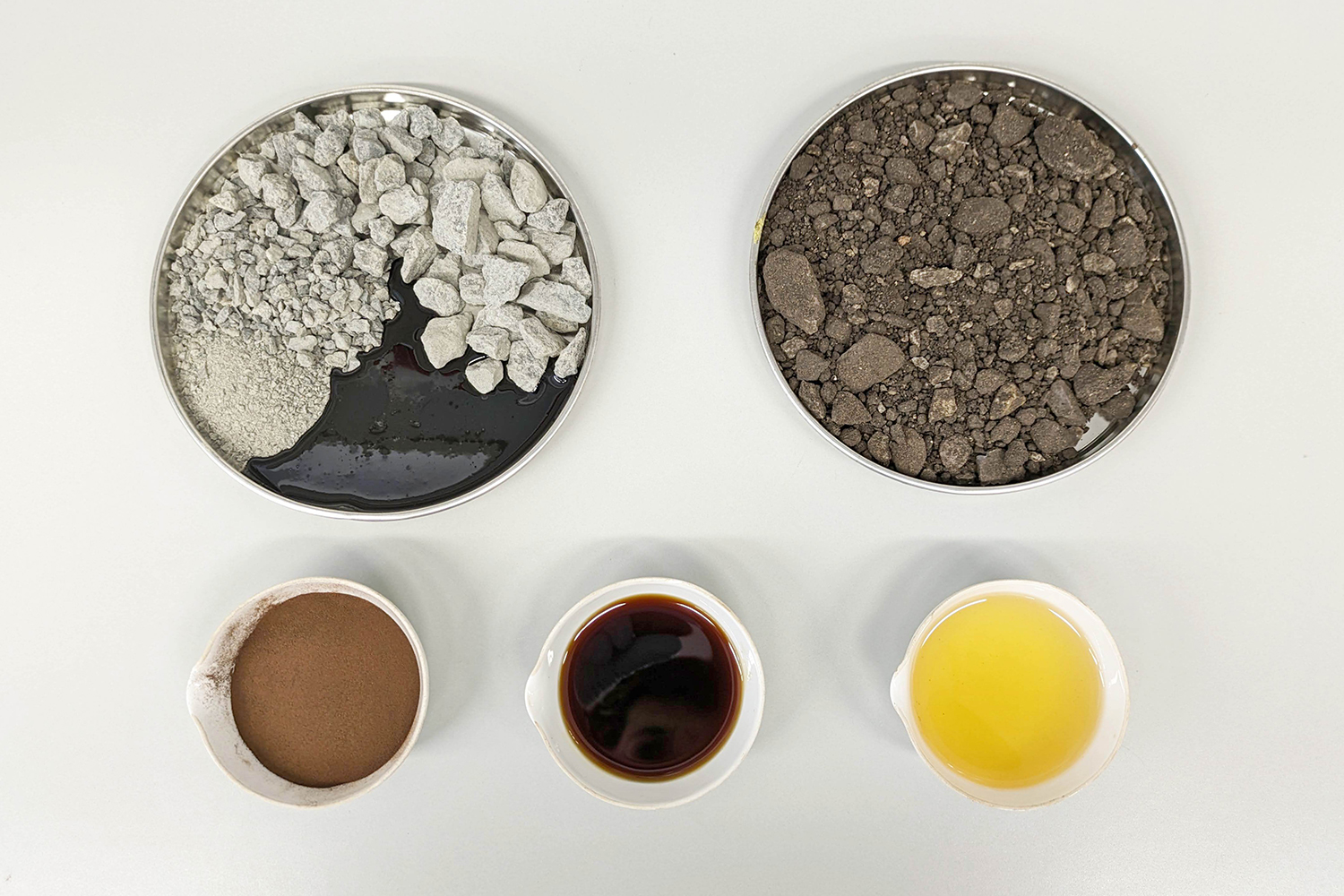Road Construction with Bioasphalt TU Braunschweig researches sustainable solution without fossil bitumen
Asphalt is the world’s most important road construction material. In Germany, around 95 per cent of all road surfaces consist of this material – a mixture of aggregates and bitumen, a black petroleum derivative. Scientists from TU Braunschweig, TU Wien and the Eastern Switzerland University of Applied Sciences are working on a research project to develop a bioasphalt. In this project, sustainable biological binders will replace conventional fossil bitumen. This could significantly reduce carbon dioxide emissions from asphalt production and make road construction more climate-friendly overall. The project is funded by the Volkswagen Foundation with around 707,000 euros.

Asphalt is a mixture of aggregates and bitumen, a black petroleum derivative. Bioasphalt should consist almost entirely of recycled asphalt, supplemented by biological binders such as lignin, resins and vegetable oils. Photo credit: Johannes Büchner/TU Braunschweig
Asphalt roads are resurfaced at the end of their scheduled 30-year life. The old reclaimed asphalt, as a waste material, can be reused after appropriate treatment. In Germany, the asphalt industry already operates a recycling system in which 80% of all reclaimed asphalt is reused. However, a certain proportion of fresh bitumen is always required for reuse to ensure satisfactory performance of the asphalt pavement.
Bitumen in road construction – completely dependent on the oil industry
Bitumen is the glue that holds the grains of stone together in asphalt. It is a black petroleum derivative produced in refineries during oil processing. This means that the asphalt road construction sector is currently completely dependent on the use of fossil fuels. In Europe, ten million tonnes of bitumen are used every year to build and maintain asphalt roads. “It takes about 1,000 litres of water and 15,000 kWh of energy to produce one tonne of bitumen – this is roughly equivalent to the average annual energy consumption of a household in the EU,” says Professor Michael Wistuba, Head of the Braunschweig Pavement Engineering Centre at TU Braunschweig and coordinator of the project. In addition, the production of one tonne of bitumen releases 712 kilograms of carbon dioxide into the air, resulting in annual emissions of almost eleven million tonnes of greenhouse gases from bitumen production in Europe.
Recycled asphalt with biological binders
In the NOBIT (No Bitumen) research project, supported by the Volkswagen Foundation, scientists are developing a technology concept for a so-called bioasphalt. This more sustainable construction material will consist almost entirely of recycled asphalt, supplemented by biological binders. Project manager Johannes Büchner says: “The project has two main objectives: to maximise the proportion of recycled asphalt and to replace the fossil bitumen currently used with sustainable resources.” Some promising raw materials for bio-binders are already known from international research, such as lignins, resins and vegetable oils, all of which are recycled from industrial waste.
The Braunschweig Pavement Engineering Centre at TU Braunschweig, the Institute of Materials Chemistry at TU Wien and the Institute for Environmental and Process Engineering at the Eastern Switzerland University of Applied Sciences are working on the project on an interdisciplinary basis. In addition to investigating materials technology issues, the researchers will also carry out a sustainability and economic assessment of the new technology concept to analyse its ecological and economic impact. At the end of the project, the newly developed bioasphalt will be produced in a large-scale mixing plant and validated in road construction on two test sections.
Project data
The project “Technology Concept for Bioasphalt: 100% Recycling @ 0% Fresh Fossil Fuels”, or NOBIT (No Bitumen) for short, is funded by the Volkswagen Foundation for three years until 31 January 2027 as part of the “Circularity with recycled and biogenic resources” funding initiative. The project partners are the Braunschweig Pavement Engineering Centre at TU Braunschweig, the Institute of Materials Chemistry, Atmospheric Physical Chemistry at TU Vienna and the Institute for Environmental and Process Engineering at the Eastern Switzerland University of Applied Sciences. The funding amounts to 707,500 euros, of which 340,800 euros will go to TU Braunschweig.
Further information can be found on the website of the Braunschweig Pavement Engineering Centre: https://www.tu-braunschweig.de/isbs/aktuelles/detailansicht/forschungsprojekt-nobit
